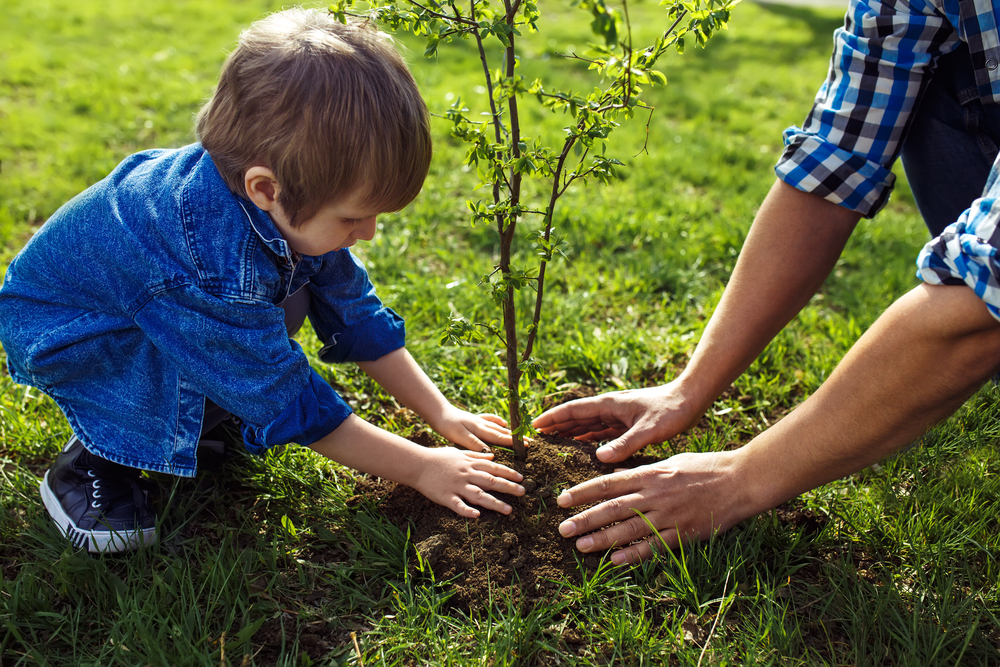Helping Children Triumph Over Grief

Children are amazingly perceptive. They sense when adults around them are stressed, sad or keeping a secret. While you may be inclined to shield children from grief, this can actually lead to confusion and anger.
Wherever possible, children should be prepared for the passing of a loved one. In the event of a terminal illness, children should be prepared for the passing just as an adult would be. Death should be approached openly and honestly. Remember that children are accustomed to adults providing solutions and will have difficulty understanding why their loved one can’t be made well again. Explaining the process of death, perhaps with the assistance of suitable books, is a healthier approach than denying the tragedy.
Although naturally resilient, it should not be assumed that children will be unaffected by death. They may experience any or all of the following:
Anger
Children, like adults, may feel rage at the deceased person, other relatives or themselves.They may even resent acquaintances who have not had to suffer through the anguish of losing a loved one.
Fear
Whenever a loss occurs, people affected are reminded that they, too, will die. It is no different in children, although it may be their first time realizing the permanence of death. They may fear their own death, or the death of others. If the deceased person was a parent, they may begin to fear that other caregivers will pass away too.
Sadness
Children experience deep sadness and even depression. They may not have experienced this level of pain before, making their feelings unrecognizable to them. Grief also manifests in physical symptoms such as stomach pain, headaches and fatigue.
Confusion
Children may not understand where the deceased person has gone and why, especially if they are too young to understand the concept of death. They may also have trouble adjusting to life without the person who has passed away, especially if that person was part of their day-to-day.
Guilt
Guilt is a natural part of grief. Children may worry that something they did or said caused the death. They could also regret not spending more time with the deceased before they passed away.
Level of involvement
Older children should be allowed to choose their level of involvement with regards to attending the funeral. They may want to write a poem, say a few words, lay a rose on the coffin, scatter ashes or wear a favorite outfit. This should be allowed wherever possible, even if it is not in keeping with the ideals of the funeral service.
Viewing of the body should be a personal decision and is probably not suited to younger children. It may be best if the loved one is remembered as when they were alive. If it is decided that the child will view the body, they should be carefully briefed as to what to expect.
Grasping the concept of death
Caregivers should take care to avoid talking about death as if it is “like sleeping” or “going to sleep” because this can make a young child fearful of going to bed at night. They may believe that they will not wake again in the morning. Euphemisms such as this ultimately do more harm than good.
It can be stressful for guardians to cope with young children at such a solemn time. If children are attending the funeral, it is important that they are made aware of the process and what is expected of them. It should also be explained that there will be many sad people in attendance. Observing grieving adults can have a profound effect: children may be reluctant to see those people again at a later stage. It is important to explain that although people are sad now, they won’t always be unhappy.
Letting them grieve, their way
If it is decided that children should not attend the funeral, encourage them to say goodbye in their own way, perhaps by planting a special tree in the garden or letting go of a balloon covered with messages and drawings. For a close relationship, creating a special, private place where the child can go to remember the person who died can provide enduring opportunities for peace.
Involve older children in decisions surrounding the death of a close friend or relative. They may want a special keepsake and should not be overlooked when belongings are being given away. Keeping to familiar routine, especially for younger children, can be helpful but care should be taken not to push children into situations until they are ready. Allow older children sufficient time to grieve and avoid returning them to school too soon.
Expressing emotion
Encourage the child to talk about their feelings. Older children may find internet support groups helpful but online activity should be carefully monitored at this vulnerable time. If those closest are unable to provide support due to their own grief, the child should be comforted by a close adult friend, perhaps a favorite aunt or uncle.
Wherever applicable, the school counselor may be able to provide advice and indeed, the school should be kept informed so that allowances can be made for changes in behavior and grades. Understand that the child who has recently been confronted by death may regress for a short while – perhaps wanting a childhood toy or adopting attention-seeking behavior.
Help children release their anger appropriately. One approach could be to encourage hitting cushions. Another could be to have the child write a letter, or draw a picture to describe their anger. This can then be torn up or burnt.
Taking care of physical health
Physical health is often forgotten or given a lower priority. However, ensuring their physical needs are attended to will provide them with a sense of safety and comfort. Ensure they have enough time to rest. Encourage children to eat and drink well. Exercise and play can be the perfect way to release frustration, anger and anxiety. Above all, ensure that children understand that although this time is difficult to deal with and the loss will always be with them, the grief will pass.



